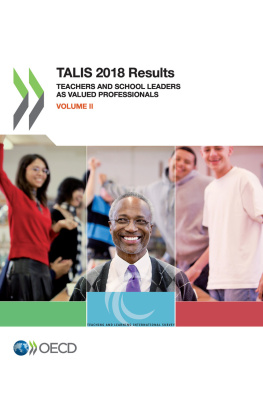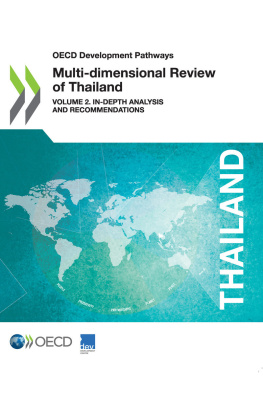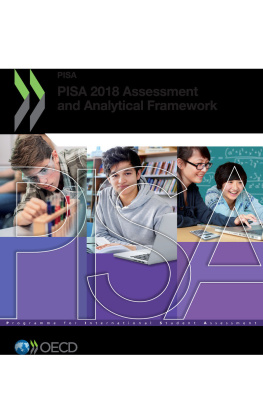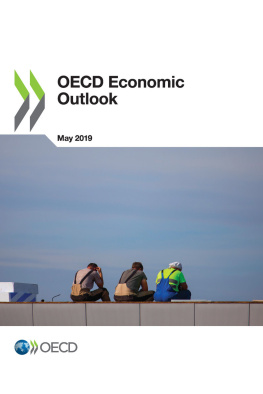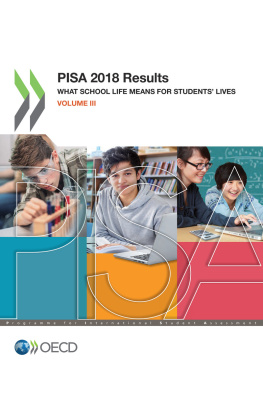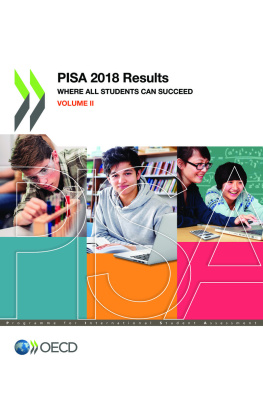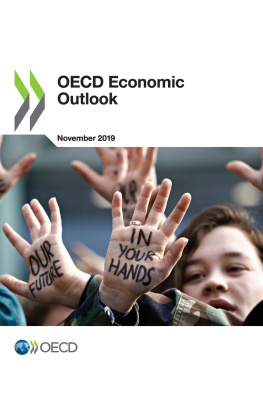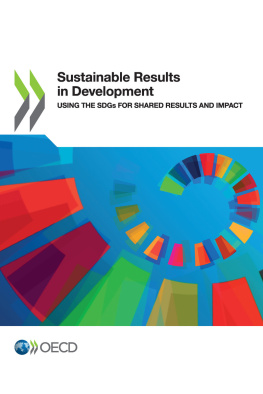OECD - TALIS 2018 Results (Volume I)
Here you can read online OECD - TALIS 2018 Results (Volume I) full text of the book (entire story) in english for free. Download pdf and epub, get meaning, cover and reviews about this ebook. year: 2019, publisher: OECD Publishing, genre: Politics. Description of the work, (preface) as well as reviews are available. Best literature library LitArk.com created for fans of good reading and offers a wide selection of genres:
Romance novel
Science fiction
Adventure
Detective
Science
History
Home and family
Prose
Art
Politics
Computer
Non-fiction
Religion
Business
Children
Humor
Choose a favorite category and find really read worthwhile books. Enjoy immersion in the world of imagination, feel the emotions of the characters or learn something new for yourself, make an fascinating discovery.
TALIS 2018 Results (Volume I): summary, description and annotation
We offer to read an annotation, description, summary or preface (depends on what the author of the book "TALIS 2018 Results (Volume I)" wrote himself). If you haven't found the necessary information about the book — write in the comments, we will try to find it.
OECD: author's other books
Who wrote TALIS 2018 Results (Volume I)? Find out the surname, the name of the author of the book and a list of all author's works by series.
TALIS 2018 Results (Volume I) — read online for free the complete book (whole text) full work
Below is the text of the book, divided by pages. System saving the place of the last page read, allows you to conveniently read the book "TALIS 2018 Results (Volume I)" online for free, without having to search again every time where you left off. Put a bookmark, and you can go to the page where you finished reading at any time.
Font size:
Interval:
Bookmark:
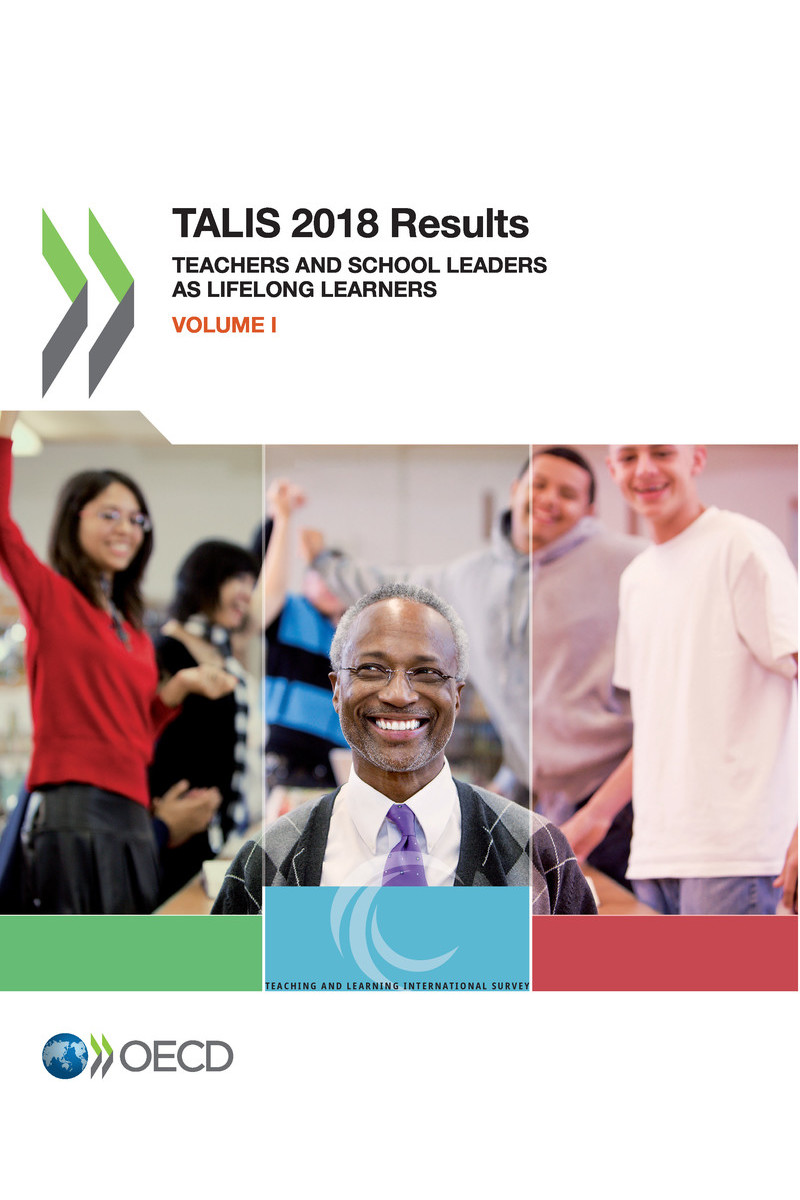
OECD (2019), TALIS 2018 Results (Volume I): Teachers and School Leaders as Lifelong Learners , TALIS, OECD Publishing, Paris, https://doi.org/10.1787/1d0bc92a-en .
These days, education is no longer just about teaching students something, but about helping them develop a reliable compass and the tools to navigate with confidence through an increasingly complex, volatile and uncertain world. We live in this world in which the kind of things that are easy to teach and test have also become easy to digitise and automate, and where society no longer rewards students just for what they know Google knows everything but for what they can do with what they know. Todays teachers need to help students think for themselves and work with others, and to develop identity, agency and purpose.
Thats why we demand a lot from our teachers. We expect them to have a deep and broad understanding of what they teach and whom they teach, because what teachers know and care about makes such a difference to student learning. That entails professional knowledge, such as knowledge about a discipline, knowledge about the curriculum of that discipline, and knowledge about how students learn in that discipline; and it entails knowledge about professional practice so teachers can create the kind of learning environment that leads to good learning outcomes. It also involves enquiry and research skills that help teachers to be lifelong learners and grow in their profession. Students are unlikely to become lifelong learners if they dont see their teachers as active lifelong learners.
There are aspects that make the job of teachers much more challenging and different from that of other professionals. Teachers need to be experts at multitasking as they respond to many different learner needs all at the same time. They also do their job in a classroom dynamic that is always unpredictable and that leaves teachers no second to think about how to react. And whatever a teacher does, even with just a single student, will be witnessed by many and can frame the way in which the teacher is perceived in the school from that day forward.
But we expect much more from teachers than what appears in their job description. We also expect them to be passionate, compassionate and thoughtful; to encourage students engagement and responsibility; to respond to students from different backgrounds with different needs and promote collaboration and social cohesion; to provide continual assessment and feedback to students; and to ensure that students feel valued and included. Not least, most people remember at least one of their teachers who took a real interest in their life and aspirations, who helped them understand who they are and discover their passions, and who taught them how to love learning. And it is precisely these aspects that motivate the vast majority of people to become teachers: according to the OECD Teaching and Learning International Survey (TALIS), nine out of ten teachers in participating OECD countries and economies consider the opportunity to influence childrens development and contribute to society a major motivation to join the profession.
It seems many school systems can do more to support teachers in achieving that mission. For a start, school systems should take a greater interest in the professional views of teachers as experts on teaching and learning. Surveys such as TALIS which establish a teacher perspective on how teaching and learning can be organised to achieve the best outcomes are still quite rare. The laws, regulations, structures and institutions that education policy tends to focus on are just like the small visible tip of a huge iceberg. The reason it is so hard to move education systems is that there is a much larger invisible part under the waterline. This invisible part is composed of the interests, beliefs, motivations and fears of the people who are involved, teachers included. This is where unexpected collisions occur, because this part tends to evade the radar of public policy.
Policy makers are rarely successful with education reform unless they help people recognise what needs to change, and build a shared understanding and collective ownership for change; unless they focus resources, build capacity, and create the right policy climate with accountability measures designed to encourage innovation and development, rather than compliance; and unless they tackle institutional structures that, too often, are built around the interests and habits of systems rather than learners. Where teachers are not engaged in the design of change, they will rarely help with the implementation of change.
The views of teachers as expressed in TALIS tell us a lot about the gap between pedagogical vision and practice, and between professional aspirations and a still highly industrial organisation of work. To meet a growing demand for high-quality teachers, countries will need to work harder, not just to make teaching financially more attractive, but most importantly intellectually more attractive by better supporting a teaching profession of advanced knowledge workers who operate with a high level of professional autonomy and within a collaborative culture. This also means providing teachers with better opportunities to prepare for tomorrows world. According to TALIS, little more than half of teachers across the participating OECD countries and economies received training in the use of technology for teaching, and less than half feel well prepared when they join the profession. Contrast this with the view of two thirds of teachers who report that the most impactful professional development they participated in focused on innovation in their teaching.
Font size:
Interval:
Bookmark:
Similar books «TALIS 2018 Results (Volume I)»
Look at similar books to TALIS 2018 Results (Volume I). We have selected literature similar in name and meaning in the hope of providing readers with more options to find new, interesting, not yet read works.
Discussion, reviews of the book TALIS 2018 Results (Volume I) and just readers' own opinions. Leave your comments, write what you think about the work, its meaning or the main characters. Specify what exactly you liked and what you didn't like, and why you think so.









